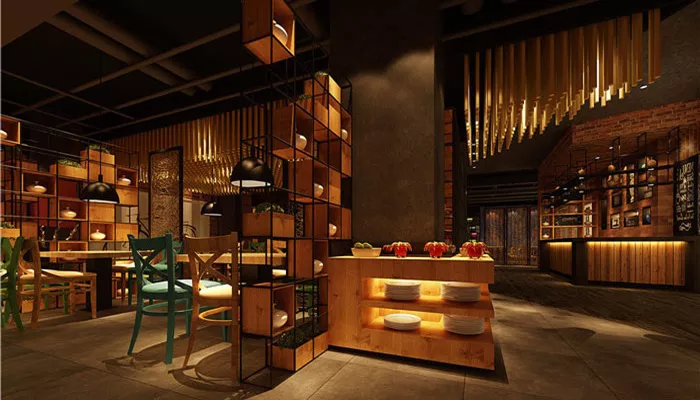Gimgane is a popular franchise specializing in kimbap, a traditional Korean dish made from rice and various fillings rolled in seaweed. The brand has gained significant traction in the fast-casual dining sector due to its focus on quality ingredients and customer satisfaction. One of the key indicators of a franchise’s success is its average daily sales, which can provide insights into its profitability and operational efficiency. This article will explore the average daily sales of Gimgane franchise stores, the factors influencing these sales, and how they contribute to the overall success of the brand.
Understanding Gimgane’s Average Daily Sales
The average daily sales of Gimgane franchise stores are reported to be around 1 million KRW (approximately $850). This figure is a strong indicator of the brand’s market position and the effectiveness of its business model. Achieving this level of sales is significant for a fast-casual dining establishment, especially one that operates in a competitive market.
Factors Influencing Daily Sales
Several factors contribute to the average daily sales of Gimgane franchise stores. Understanding these factors can help potential franchisees gauge the potential profitability of their investment.
1. Location
The location of a Gimgane franchise plays a crucial role in its sales performance. High-traffic areas, such as shopping districts, office complexes, and university campuses, tend to attract more customers.
Franchisees who choose locations with good visibility and accessibility can expect higher foot traffic and, consequently, increased sales.
2. Menu Offerings
Gimgane’s menu is designed to appeal to a wide range of customers.
The franchise offers various kimbap options, snacks, and beverages, catering to different tastes and dietary preferences. Seasonal menu items and limited-time offers can also create excitement and encourage repeat visits, contributing to higher daily sales.
SEE ALSO: What Are The Main Ingredients Used in Gimgane’s Dishes?
3. Quality of Ingredients
Gimgane emphasizes the use of fresh, high-quality ingredients in its menu items. This commitment to quality not only enhances the taste of the food but also builds customer loyalty. Satisfied customers are more likely to return and recommend the franchise to others, positively impacting daily sales.
4. Marketing and Promotions
Effective marketing strategies play a significant role in driving sales. Gimgane provides its franchisees with marketing support, including promotional materials and guidance on local marketing initiatives. Franchisees who actively engage in marketing efforts, such as social media campaigns, community events, and special promotions, can significantly boost their daily sales.
5. Customer Experience
The overall customer experience, including service quality and restaurant ambiance, can influence repeat business.
Gimgane franchisees are trained to provide excellent customer service, which can lead to positive reviews and word-of-mouth referrals. A welcoming environment encourages customers to dine in, increasing the likelihood of higher sales.
Profitability And Financial Performance
With an average daily sales figure of 1 million KRW, Gimgane franchise stores can achieve a healthy profit margin. The typical profit margin for Gimgane is approximately 20%, meaning that after accounting for costs such as food, labor, and rent, franchisees can expect to retain around 200,000 KRW (approximately $170) in profit each day.
Breakdown of Costs
To understand the profitability of a Gimgane franchise, it is essential to consider the various costs associated with operating the business.
Here’s a breakdown of typical costs:
Food Costs: Approximately 30-35% of total sales. This includes the cost of ingredients for kimbap, snacks, and beverages.
Labor Costs: Typically around 20-25% of sales. This includes wages for staff, including chefs and service personnel.
Rent: Depending on the location, rent can vary significantly.
Franchisees should budget around 10-15% of sales for rent.
Utilities and Miscellaneous Costs: These can account for an additional 5-10% of total sales.
Sales Variability
While the average daily sales figure provides a useful benchmark, actual sales can vary based on several factors:
Seasonality: Sales may fluctuate based on seasonal trends. For example, summer months might see increased sales due to higher foot traffic in tourist areas.
Day of the Week: Sales can vary by day, with weekends typically seeing higher traffic than weekdays. Franchisees in business districts may experience lower sales on weekends when office workers are less likely to dine out.
Local Events: Community events, festivals, and promotions can lead to spikes in sales, while periods of inactivity may result in lower sales.
Strategies for Increasing Daily Sales
Franchisees looking to maximize their daily sales can implement several strategies:
1. Menu Innovation
Regularly updating the menu with new and exciting items can attract customers and encourage repeat visits. Seasonal specials and limited-time offers create urgency and excitement.
2. Loyalty Programs
Implementing a loyalty program can incentivize repeat business.
Customers who earn rewards for their purchases are more likely to return, increasing overall sales.
3. Community Engagement
Participating in local events and engaging with the community can enhance brand visibility. Sponsoring local events or collaborating with nearby businesses can drive traffic to the store.
4. Online Presence
Building a strong online presence through social media and a user-friendly website can attract new customers. Online ordering and delivery options can also increase sales, especially in urban areas.
Conclusion
Gimgane’s average daily sales of 1 million KRW highlight the franchise’s success in the fast-casual dining sector. Several factors influence these sales, including location, menu offerings, quality of ingredients, marketing efforts, and customer experience. With a profit margin of approximately 20%, franchisees can achieve a healthy return on investment.
By understanding the dynamics of daily sales and implementing effective strategies, Gimgane franchisees can maximize their profitability and contribute to the brand’s continued growth. As the demand for kimbap and Korean cuisine rises, Gimgane is well-positioned to thrive in the competitive food industry, making it an attractive option for potential franchisees.

